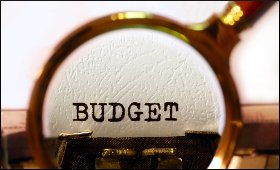|

|
India's budget: Mood mixed at Moody's
|
|

|
|
| Top Stories |
 |
|
|
|
SMER Times News Bureau | 02 Mar, 2015
Global credit rating agency Moody's Investors Service on Monday said India's budget for 2015-16 is credit positive for corporates and a mixed bag for the banks.
The increase in service tax, however, is credit negative as it would increase the production cost for Indian corporates, the agency said.
"Measures designed to reduce and rationalise taxes, boost economic growth and increase the ease of doing business will support the credit profiles of Indian non-financial corporates, but a reduction in the fuel subsidy allocation is credit negative for upstream oil and gas companies," Vikas Halan, a Moody's vice president and senior credit officer was quoted in a statement.
For non-financial corporates generally, Moody's notes that the budget proposes to reduce the corporate tax rate to 25 percent from 30 percent over the next four years, and also seeks to rationalise the tax structure, in part, by increasing the excise duty rate and introducing a unified Goods and Services Tax from April 1, 2016.
On the other hand, the proposed increase in the service tax - the indirect tax paid on the value of services consumed - is credit negative because it will raise the cost of production for Indian corporates.
Another credit negative factor, and specifically for upstream oil and gas companies, is the decision to lower the fuel subsidy allocation for fiscal 2016 as it indicates that the subsidy burden of these corporates will remain high in fiscal 2015 and that they will have to bear any shortfall in the subsidy amount in fiscal 2016.
For the infrastructure sector - including power, highways and railways - recommendations in the budget would both raise public sector investment and encourage private sector investment.
"A significant increase in planned public sector capital expenditure, coupled with measures to increase investment and financing in the private sector, will be credit positive for infrastructure companies," said Abhishek Tyagi, a Moody's vice president and senior analyst.
The budget also proposes the setting up of a national investment and infrastructure fund, which would raise debt and invest in infrastructure finance projects, helping enhance - along with other measures - the ability of infrastructure firms to access funding, Moody's said.
"By comparison, public sector banks can expect limited near-term relief, with the government allocating a significantly lower amount of capital than in recent years, while proposals to set up a bank board bureau and adopt a new bankruptcy law have the potential to improve governance over time, if implemented effectively," said Srikanth Vadlamani, a Moody's vice president and senior credit officer.
According to Moody's, the budget's implications for the banks are mixed, noting - for example - that their capital allocation for fiscal 2016 is lower than fiscal 2015.
However, the government proposes to improve governance and set up an autonomous bank board bureau, which would help public sector banks in areas such as management quality and strategy.
The proposed introduction of a new bankruptcy law would also be credit positive. The current weak bankruptcy framework has been a major impediment for banks in enforcing credit rights. Few details on the new law are currently available.
|
|
|
| |
|
|
|
|
|
|
|
|
|
|
|
|
|
|
| |
| Customs Exchange Rates |
| Currency |
Import |
Export |
US Dollar
|
66.20
|
64.50 |
UK Pound
|
87.50
|
84.65 |
Euro
|
78.25
|
75.65 |
| Japanese
Yen |
58.85 |
56.85 |
| As on 13 Aug, 2022 |
|
|
| Daily Poll |
 |
 |
| PM Modi's recent US visit to redefine India-US bilateral relations |
|
|
|
|
|
| Commented Stories |
 |
|
|
|
|
|
| |
|